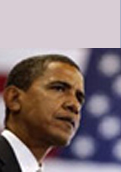To Stop Iran Getting the Bomb, Must We Learn to Live with Its Nuclear Capability?
The latest report of the International Atomic Energy Agency (IAEA) on Iran's alleged nuclear weapons programme, released on November 8, 2011, has effectively raised the global threat level. The agency faced the daunting challenge of making a judgement on how far Iran's nuclear programme has advanced and its potential for weaponisation on the basis of suggestive but dated, inconclusive and possibly fake evidence (hundreds of pages of evidence have been sourced to one laptop of unproven provenance given to the IAEA by a Western intelligence agency).
- Ramesh Thakur
- March 2012












